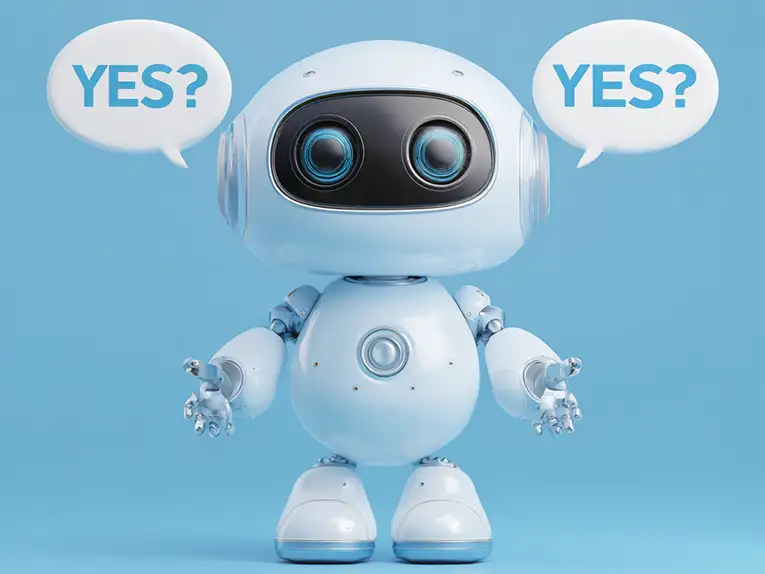How Accurate is ChatGPT?

Amanda Lee

ChatGPT has become one of the most popular AI tools in the world. Millions of people now rely on it to draft emails, generate code, summarize documents, and even answer customer inquiries. But as impressive as it is, businesses are asking a key question: How accurate is ChatGPT?
Or put another way: Is ChatGPT reliable enough to trust with your customers, employees, and business-critical operations?
The short answer: ChatGPT is often accurate, but not always reliable. To use it effectively, you need to understand both its strengths and limitations—and more importantly, how to adapt it to your organization’s needs.
This article explores ChatGPT’s accuracy in depth, examines the risks of relying on it “out of the box,” and explains how platforms like CrafterQ make AI-powered chatbots more accurate, reliable, and business-ready.
Understanding ChatGPT Accuracy
ChatGPT is a large language model (LLM) trained on a vast amount of text from the internet, books, and other sources. Its primary function is predicting the next word in a sequence, which makes it capable of generating coherent and natural-sounding answers.
However, accuracy is not the same as fluency. ChatGPT can sound convincing even when it is factually wrong. This is where concerns about reliability come in.
When ChatGPT is Accurate
-
General Knowledge Questions: For widely available facts like definitions, historical events, or scientific basics, ChatGPT is usually very accurate.
-
Language and Writing Tasks: It excels at grammar correction, summarization, content drafting, and style matching.
-
Pattern-Driven Information: With coding, math syntax, or common formulas, ChatGPT often produces highly accurate answers, especially in structured problem sets.
-
Context-Aware Replies: When the prompt provides clear instructions and enough context, accuracy improves significantly.
When ChatGPT Struggles with Accuracy
-
Outdated Information: Unless it’s connected to live data, ChatGPT can’t provide the latest updates on news, markets, or product changes.
-
Ambiguous or Vague Questions: If the user isn’t specific, the AI may “guess” and generate an inaccurate response.
-
Complex Reasoning and Multi-Step Logic: While improving, ChatGPT sometimes fails on multi-step problem solving, producing errors in reasoning.
-
Hallucinations: The model may invent answers that sound authoritative but are factually incorrect, which is a major concern for business use.
Benchmark Studies: How Accurate is ChatGPT Really?
Independent tests and academic research have measured ChatGPT’s accuracy across various domains. While results vary, studies consistently show:
-
High accuracy (80–90%) in general knowledge tasks.
-
Moderate accuracy (60–80%) in specialized fields like medicine, law, or finance.
-
Lower reliability (<60%) when questions are ambiguous, rare, or require up-to-date knowledge.
For example, recent studies found that ChatGPT could pass many standardized tests with above-average performance, but also show that it hallucinates about 28% of the time.
The takeaway: ChatGPT is not a guarantee of accuracy; after all, it’s a probability engine.
Is ChatGPT Reliable for Business Use?
When individuals use ChatGPT for brainstorming or drafting, an occasional inaccuracy may be acceptable. But in a business setting, reliability is non-negotiable.
Imagine:
-
A customer support chatbot gives out-of-date refund policies.
-
A sales assistant provides incorrect product specifications.
-
A healthcare AI misrepresents medical guidelines.
Each of these could result in lost trust, revenue, or even legal risk.
So the question becomes not just “is ChatGPT accurate?” but “is ChatGPT reliable enough for business-critical interactions?”
How Businesses Can Improve ChatGPT Accuracy
The good news is that businesses don’t need to rely on ChatGPT in its generic form. With the right approach, you can make it much more reliable. Here are proven methods:
1. Grounding with Your Own Data
By connecting ChatGPT to your internal knowledge bases, website content, product catalogs, policies, and documentation, you ensure it responds with business-specific facts rather than general guesses.
2. Retrieval-Augmented Generation (RAG)
This method enables the AI to look up website content, relevant documents, and more before answering, which dramatically reduces hallucinations.
3. Regular Updates
Integrating real-time data feeds ensures your chatbot always reflects the most recent information.
4. Human-in-the-Loop Oversight
In sensitive domains, a hybrid model that is AI first, human validation second helps maintain high accuracy.
5. Analytics and Continuous Improvement
Monitoring chatbot interactions allows you to detect inaccuracies and fine-tune the system over time.
CrafterQ: Making AI Chatbots Accurate and Reliable
At CrafterQ, we understand that accuracy is everything when it comes to enterprise AI. That’s why our AI chatbot platform is designed to go beyond “generic ChatGPT” and deliver business-ready AI agents.
With CrafterQ, you can:
-
Train AI chatbots on your own content and data for reliable answers.
-
Deploy across all digital touchpoints—websites, apps, e-commerce, intranets, and more.
-
Ground responses in trusted sources to eliminate hallucinations.
-
Use advanced analytics to monitor performance and continuously improve.
-
Maintain full control over accuracy, branding, compliance, and tone of voice.
Instead of a one-size-fits-all AI, CrafterQ gives you customized, trustworthy AI assistants that enhance customer experiences across many business use cases without the risk of misinformation.
Real-World Examples of AI Accuracy in Action
-
E-Commerce Support: A retailer used CrafterQ to connect its AI chatbot to the product database, ensuring customers always received accurate, real-time inventory and pricing information.
-
Financial Services: A bank trained its chatbot on internal compliance documents, guaranteeing customers received policy-accurate answers without regulatory risk.
-
Healthcare: A medical office used AI agents trained only on vetted medical guidelines, reducing the chance of inaccurate or unsafe advice.
The Future of ChatGPT Accuracy
As AI models continue to evolve, their accuracy is improving. OpenAI, Anthropic, Google and others are investing heavily in reducing hallucinations, improving reasoning, and expanding up-to-date access.
But for businesses, the future is not just more powerful AI; it’s smarter deployment. By combining large language models with enterprise data, companies can move from “good enough” AI to reliable, trustworthy AI that drives real results.
Summary
So, how accurate is ChatGPT? The answer is: accurate enough for many tasks, but not inherently reliable for business-critical use cases.
On its own, ChatGPT may give the right answer 70–80% of the time. But with the right tools, like CrafterQ’s AI chatbot platform, that accuracy can be boosted to near 100%, grounded in your business’s unique knowledge.
In today’s digital landscape, where customers expect fast, accurate, and trustworthy answers, that difference matters.
CrafterQ makes ChatGPT accuracy work for your business. Sign up for the CrafterQ AI Waitlist today.



